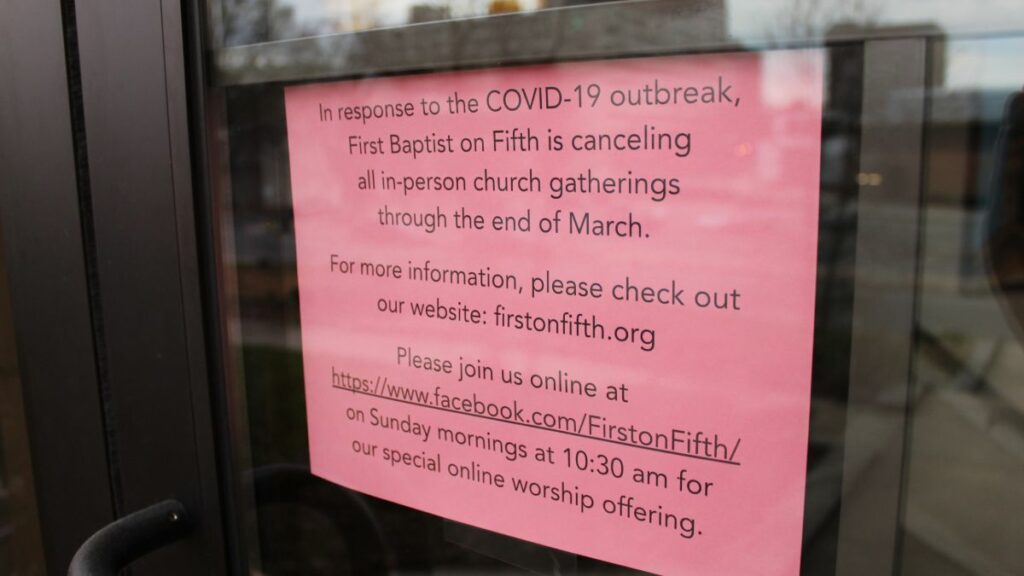“Religion in America takes no direct part in the government of society,” observed the nineteenth-century French traveler and historian Alexis de Tocqueville in his Democracy in America, “but it must be regarded as the first of their political institutions…. I do not know whether all Americans have a sincere faith in their religion— for who can search the human heart?— but I am certain that they hold it to be indispensable to the maintenance of republican institutions.”
George Washington certainly did. He who was “first in war, first in peace, and first in the hearts of his countrymen” repeatedly emphasized the primacy of what would come to be known as our “first freedom,” as he did upon leading the American forces to victory: “The establishment of Civil and Religious Liberty was the Motive which induced me to the Field.” Years later in his farewell address to the nation, President Washington emphasized, “Of all the dispositions and habits which lead to political prosperity, Religion and morality are indispensable supports.” John Adams was no less adamant: “Statesmen… may plan and speculate for Liberty, but it is Religion and Morality alone, which can establish the Principles upon which Freedom can securely stand.” And James Madison’s conviction regarding the preeminent role of religion was enshrined as the first freedom protected in the Bill of Rights: “Congress shall make no law respecting an establishment of religion.”
Thus did the Founders perceive with prophetic-like vision what was true not only for their fledgling nation but for the America of all future generations. “Where a healthy religious life flourishes,” explains Princeton Professor Robert P. George, “faith in God provides a grounding for the dignity and inviolability of the human person”— one of the pillars of “any healthy society, any decent society.” And “where this pillar is in place, the formal and informal institutions of society, and the beliefs and practices of the people, will be such that every member of the human family, irrespective not only of race, sex, or ethnicity but also of age, size, stage of development, or condition of dependency, is treated as a person— that is, as a subject bearing profound, inherent, and equal worth and dignity.”
It is with alarming irony, then, that our religious freedom—the single most important factor in fostering respect for the inherent dignity and equal worth of every individual—is being marginalized and ignored at this critical time when the sick need ministering to in our pestilence-plagued land and when our society needs healing from the ravages of racism. In stark contrast to George Washington’s assessment of religion as “indispensable,” it is now being deemed “non-essential” by far too many governmental authorities. It is viewed “as a hobby,” warns Professor George, “like football, or going to the ballet, or collecting stamps.” The mayor of New York City, for example, expressly allowed massive protests while disallowing religious gatherings, which governors around the country routinely exclude from their list of essential services.
“Something is terribly wrong,” proclaimed a coalition of Catholic leaders, “with a culture that allows abortion clinics and liquor stores to remain open but shuts down places of worship. While safety and cooperation with civil authorities is necessary, we must do everything we can to have access to what is essential for our spiritual lives.” According to Pope Francis, “This pandemic has forced everyone to communicate, even religiously,… through the communications media,” but “this is not the church. This is the church in a difficult situation which the Lord permits, but the ideal of the church is always with the people and the sacraments…We must have familiarity with the Lord this way for now, but only so we can come out of the tunnel, not stay there.”
Elder David A. Bednar of The Church of Jesus Christ of Latter-day Saints similarly observes that “because gathering lies at the very heart of religion, the right to gather lies at the very heart of religious freedom… [T]he sweeping governmental restrictions that were placed on religious gatherings at the outset of the COVID-19 crisis truly were extraordinary. In what seemed like an instant, most Western governments and many others simply banned communal worship. These restrictions eliminated public celebrations of Easter, Passover, Ramadan, and other holy days around the world. No other event in our lifetime— and perhaps no other event since the founding of this nation— has caused quite this kind of widespread disruption of religious gatherings and worship…. [G]overnments have an affirmative duty to protect public health and safety,” but “no freedom is more important than religious freedom,” which “properly has been called our first freedom…. While believers and their religious organizations must be good citizens in a time of crisis, never again can we allow government officials to treat the exercise of religion as simply nonessential.”
What can we do? We must remember that our government is, as Abraham Lincoln said, “of the people, for the people, by the people,” and exists for the very purpose of protecting our Creator-endowed rights to life, liberty, and the pursuit of happiness. To preserve the religious freedom bequeathed by the Founders at the peril of their lives requires our eternal vigilance. It is urgent that we now speak up clearly and resolutely among family and friends, to elected representatives, and through social media as we boldly declare and defend the truth that in good times and bad, religious freedom is always our first freedom, indispensable and essential.
